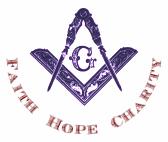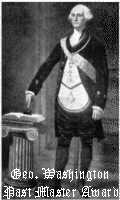 I came across an article titled Freemasonry
by Ding Cervantes on the Sun.Star Pampanga, an online
news magazine based in the Philippines. The article claims to have the answers to
Freemasonry's nature and origins, and then proceeds to unload such a heap of
falsehood and lousy research as to make the
AskMen.com article look like Pulitzer Prize material. Cervantes claims that
Freemasonry's origins lie in some murky meeting between the Elders of Zion and Adam
Weishaupt in 1773, which sounds like it came right out of
The Protocols of the Learned Elders of Zion, a horrible
antisemitic load of tripe that's been discredited since the early 20th century (see
A Lie and a Libel: The History of the Protocols of the Elders of Zion).
That an author can base an article on that sort of crap and still get published is
certainly a smear on the Pampanga's name.
I came across an article titled Freemasonry
by Ding Cervantes on the Sun.Star Pampanga, an online
news magazine based in the Philippines. The article claims to have the answers to
Freemasonry's nature and origins, and then proceeds to unload such a heap of
falsehood and lousy research as to make the
AskMen.com article look like Pulitzer Prize material. Cervantes claims that
Freemasonry's origins lie in some murky meeting between the Elders of Zion and Adam
Weishaupt in 1773, which sounds like it came right out of
The Protocols of the Learned Elders of Zion, a horrible
antisemitic load of tripe that's been discredited since the early 20th century (see
A Lie and a Libel: The History of the Protocols of the Elders of Zion).
That an author can base an article on that sort of crap and still get published is
certainly a smear on the Pampanga's name.
The history of Freemasonry has been discussed many times before in this weblog, and I'd encourage new readers to check out The Origins of Freemasonry: Scotland's Century, 1590-1710 by David Stevenson, which I reviewed last May, and The Freemasons by Jasper Ridley. Together the two of those can give a fairly accurate overview of what we know of the history of our fraternity, both before and after the formation of the first Grand Lodge. In short, Freemasonry's origins can probably be traced back to operative Scottish stonemasons in the late 16th century. Developing underground for more than a century, we became a public "secret society" in 1717 when a group of London lodges met and decided to form the first Grand Lodge.
The article goes on to claim that Freemasonry was responsible for the French Revolution, Napolean, the first League of Nations, the assassination of the Romanovs, and Cagliostro's diamond necklace affair. And, of course, this article is just part one. That means there will be more. I am sure we are all quivering with anticipation.
 As for the Bavarian Illuminati, they were never tied to the mythical
Elders of Zion, and a quick browse through
The International Encyclopedia of Secret Societies and Fraternal Orders
can illustrate a nice and succinct history of that short-lived organization. Formed
in Frankfurt in 1776, Adam Weishaupt's Illuminati were a group of
free-thinking anti-Christian pseudo-humanists. Apparently atheistic, they believed
in the "perfectibility of mankind" and were prepared to pursue their goals through
some revolutionary political means. While they did claim a number of prominent
members, such as Johann Wolfgang Goethe, they probably never numbered
more than 2,000 and were suppressed in 1785.
As for the Bavarian Illuminati, they were never tied to the mythical
Elders of Zion, and a quick browse through
The International Encyclopedia of Secret Societies and Fraternal Orders
can illustrate a nice and succinct history of that short-lived organization. Formed
in Frankfurt in 1776, Adam Weishaupt's Illuminati were a group of
free-thinking anti-Christian pseudo-humanists. Apparently atheistic, they believed
in the "perfectibility of mankind" and were prepared to pursue their goals through
some revolutionary political means. While they did claim a number of prominent
members, such as Johann Wolfgang Goethe, they probably never numbered
more than 2,000 and were suppressed in 1785.
Weishaupt did make an effort to infiltrate German Freemasonry and it's quite probable that much of his recruitment happened within the fraternity. When one examines their list of degrees, it is obvious that at least a few ideas and titles were borrowed from the Craft as well. But, in conclusion, I think it's easy to see that Ding Cervantes has his facts horribly, horribly wrong, and really shouldn't be perpetuating such depressing falsehoods and lies.



